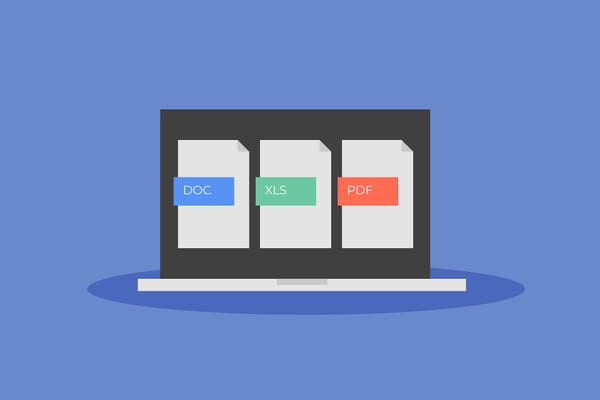Five Essential Cybersecurity Tools and Practices for Small Firms

Contrary to the common assumption that hackers only target large organizations, small firms often find themselves under attack with limited resources or inadequate security practices.
A breach can result in financial loss, damage to reputation, and legal consequences. In some cases, it can even lead to bankruptcy.
So as a small biz, it’s crucial to invest in the right cybersecurity tools and practices. Today we outline five areas where small businesses can take steps to protect themselves from cyber threats without breaking the bank.
1. Employee Training
By far the weakest link in any organization is the human layer. Phishing – the leading attack vector in cyberattacks on companies – takes advantage of human error, making it easy for threat actors to get in. Many breaches also result from weak passwords. In a sense, your employees can either be your greatest asset or your weakest link when it comes to cybersecurity. So regular cybersecurity awareness training can greatly help employees recognize potential threats and follow best practices for online behavior.
Look for training platforms that offer tailored educational modules for different types of employees and roles. Choose a service that includes phishing simulations, password security tutorials, and guidelines on recognizing social engineering attacks. And train your staff on the threats specifically targeting your industry. Since the threat landscape is constantly evolving, conduct cyber training periodically, complete with assessments to keep employees sharp.
2. Backup Your Data Regularly
Regular data backups are among the simplest yet most effective defenses against ransomware and other forms of data loss. A solid backup strategy lets your business recover quickly, whether it’s from a cyber incident, hardware failure, or human error. Both on-site and off-site backups, including cloud solutions, should be part of your overall data protection plan.
Opt for a backup solution that automatically saves data at regular intervals to both local storage and secure cloud environments. Ensure that the backup system encrypts data, so it's protected during transfer and storage. Test the recovery process periodically to ensure your data can be restored efficiently in case of a breach or disaster.
3. Enable Two-Factor Authentication (2FA)
Passwords alone are no longer sufficient to protect sensitive data. Two-factor authentication (2FA) adds an extra layer of security by requiring a second form of verification—usually a code sent to a different device or platform (i.e. SMS, email, or an authenticator app). This makes it much harder for cybercriminals to access accounts, even if passwords are compromised.
Implement 2FA across all company accounts, ensuring that employees use both something they know (a password) and something they have (like a mobile device or a token) to authenticate. Consider multi-factor authentication (MFA) for highly sensitive areas, adding additional layers of security such as biometric data or hardware tokens. Bitdefender strongly recommends that small firms move away from the traditional SMS-based MFA and switch to a trusted authenticator service. Read: Why Use an Authenticator App Instead of SMS?
4. Secure Your Wi-Fi
A motivated attacker can leverage your Wi-Fi network as an entry point if it’s not properly secured. Unprotected or poorly protected networks can allow unauthorized access to your business systems and data, putting sensitive information at risk. So securing your Wi-Fi network is a critical step in safeguarding your company’s digital infrastructure.
Use strong encryption protocols, such as WPA3, to secure your Wi-Fi connections. Set up a separate guest network to prevent external users from accessing your main business network. Ensure your Wi-Fi router's firmware is regularly updated to patch any vulnerabilities. Additionally, regularly monitor network activity and restrict access to authorized devices only.
5. Deploy a Dedicated Security Solution
Dedicated security software is designed to detect and neutralize threats like malware (i.e. ransomware), and other attacks that target individual computers, smartphones, and tablets.
Consider using a dedicated small-business security suite like Bitdefender Ultimate Small Business Security, with layered security features including malware detection, ransomware prevention, email protection, account breach protection, scam protection, and VPN. Our solution – an extended version of our consumer-friendly security suite – can be administered by anyone designated to do so in your organization, thanks to a natural, intuitive dashboard designed for use even by non techies.
Protect the big future of your small business
Small firms stand to lose more from a run-in with hackers than they would spend on the proper cybersecurity strategy to prevent such incidents in the first place. Best of all, thanks to dedicated solutions like Bitdefender Ultimate Small Business Security, cybersecurity doesn’t have to be overwhelming or overly expensive.
Investing in the right tools and fostering good security practices can significantly reduce the risk of cyberattacks and protect your business from harm. Reliable endpoint protection, regular data backups, multi-factor authentication, and well-trained employees form the cornerstone of a strong defense strategy for any organization, large or small.
Cybersecurity is not just a technical issue—it’s a business requisite. Taking these proactive steps will help safeguard your data, reputation, and financial future.
For more insights into the key cyberthreats targeting small firms and how to combat them, you may also want to check out these extra tips:
What Key Cyberthreats Do Small Businesses Face?
Why Cybersecurity Training and Awareness Are Essential for Any Small Business
tags
Author
Filip has 15 years of experience in technology journalism. In recent years, he has turned his focus to cybersecurity in his role as Information Security Analyst at Bitdefender.
View all postsRight now Top posts
How to Protect Your WhatsApp from Hackers and Scammers – 8 Key Settings and Best Practices
April 03, 2025
Outpacing Cyberthreats: Bitdefender Together with Scuderia Ferrari HP in 2025
March 12, 2025
Streamjacking Scams On YouTube Leverage CS2 Pro Player Championships to Defraud Gamers
February 20, 2025
How to Identify and Protect Yourself from Gaming Laptop Scams
February 11, 2025
FOLLOW US ON SOCIAL MEDIA
You might also like
Bookmarks







